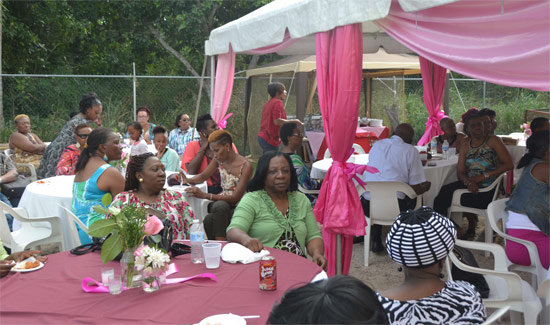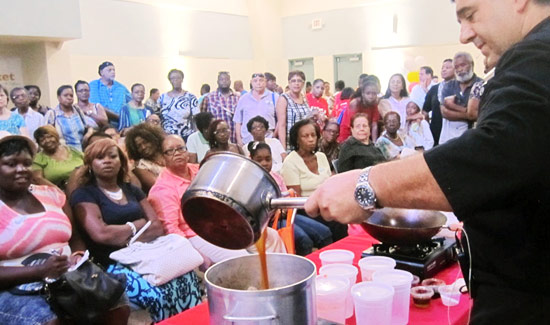NASSAU, The Bahamas — The Department of Environmental Health Services (DEHS) has “stepped up” its source reduction measures as part of an aggressive response to two confirmed cases of dengue fever (DF) in New Providence.
Source reduction methods reduce the breeding of the Aedes aegypti mosquito whose bite helps to transmit dengue fever, an acute infectious disease caused by four closely related viruses and transmitted by the bite of the female Aedes aegypti mosquito.
Classic symptoms of the disease include fever, headaches, chills, eye pain and “generalised body and muscle pain.”
Minister of Health, Dr. the Hon. Hubert A. Minnis said dengue fever should not be confused with the more severe form of dengue hemorrhagic fever (DHF), which can be life-threatening.
“We have had no incidences of dengue hemorrhagic fever in The Bahamas. That has been seen in other parts of the world,” Dr. Minnis said.
Dr. Minnis said more than 40 persons have presented at public healthcare facilities with flu-like symptoms. (Persons presenting with flu-like symptoms are having flu-like symptoms does not automatically mean that they have dengue fever health officials say.)
He said only two of those cases have been confirmed as having dengue fever. Another 11 samples have been sent for testing. Initial indications are that 50 per cent of those samples may test positive for dengue fever.
Dr. Minnis said officials at the Department of Environmental Health Services and those in the health sector have been “very aggressive in monitoring and dealing with the situation most expeditiously.”
He said that in addition to stepping up its source reduction measures at the Department of Environmental Health Services, officials at the Department of Public Health (DPH) continue to maintain “a maximum level of clinical, laboratory, epidemiological and entomological surveillance” of both the disease and vector.
“And once any patient presents into the health community with flu-like symptoms suspicious of dengue, it is dealt with aggressively,” Dr. Minnis said.
“There has always been, and will continue to be a timely exchange of information to respond effectively in the event of disease,” Dr. Minnis added.
Dr. Minnis said officials in the Ministry of Health, the Department of Public Health and the Department of Environmental Health Services are being very proactive “because of the change we have seen over the past week.”
“Up to one week ago, there were 26 cases of persons presenting with flu-like symptoms. If in a manner of one week, we saw an additional 14 persons presenting with similar symptoms, then that concerns us in which case we are going to be proactive to ensure that everybody is safe,” Dr. Minnis added.
Dr. Minnis said The Bahamas has had “periodic” outbreaks of the illness beginning in 1998 but that the numbers have been “significantly reduced”, due to enhanced surveillance, early case identification and rapid response and containment measures.
He said current weather conditions are “favourable” for vector transmission. The Health Minister said Bahamians everywhere should begin to empty all sources of standing water and dispose of all garbage in the correct manner to avoid breeding of mosquitos during the rainy season.
“Persons should also wear mosquito repellants; use approved household insecticides inside of their homes to eliminate indoor mosquitos, and ensure that windows and door screens are intact,” Dr. Minnis added.
By Matt Maura
Bahamas Information Services



